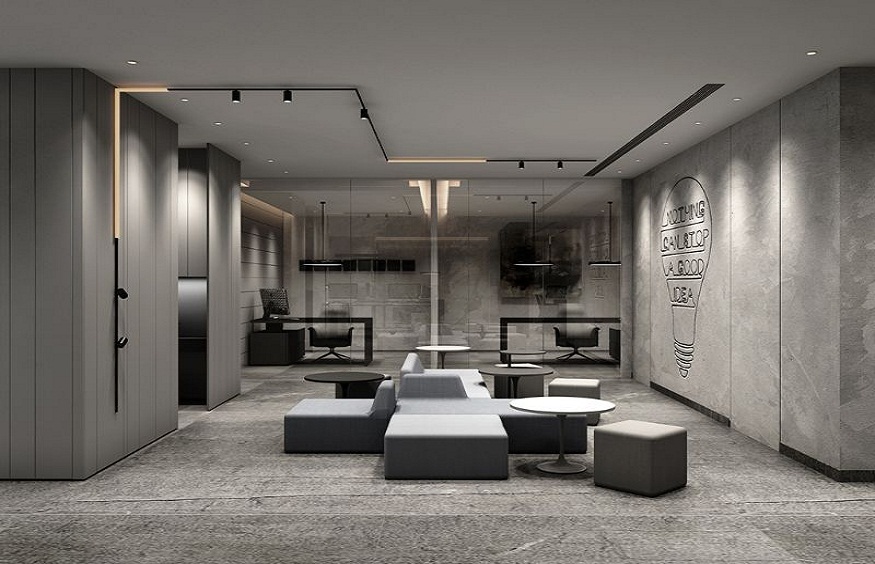Mumbai is India’s commercial capital, home to thousands of businesses from MNCs to growing startups. The city’s fast-paced commercial environment presents distinctive challenges and opportunities for office interior design. Limited space, high real estate costs, and diverse employee needs make it essential to use professional design expertise to create functional and inspiring work environments.
The urban hub requires office environments that support high employee density without compromising on comfort and productivity. Businesses require an office interior designer in Mumbai that helps with effective space utilization with no compromise on aesthetics or functionality. Such establishments require expertise in understanding local market conditions and design best practices.
-
Experience and Portfolio Assessment
In reviewing prospective design partners, their past work is important in revealing their skills and aesthetics. Experience with Mumbai’s unique market conditions provides worthwhile benefits. Designers with experience in local building regulations, supply chains, and logistical challenges are better equipped to manage projects efficiently and avoid common issues that cause delays or increase costs. Their completed projects reflect their attention to detail, project management skills, and ability to turn complex ideas into reality. Whenever possible, visiting these completed office spaces can give you a clear understanding of how design concepts are successfully brought to life.
-
Industry Specialization and Understanding
Various industries have distinct needs for their office space. Technology companies often prefer collaborative spaces and flexible layouts, while law firms may need private offices and formal meeting rooms. An experienced office interior designer in Mumbai should understand these varying requirements and tailor their design approach accordingly to meet the specific needs of each industry.
Corporate culture factors are an important consideration when making design decisions. Some companies have an open communication and transparency culture, resulting in open-plan designs with glass walls.
Knowledge of workflow patterns within a given industry allows designers to align space layouts for optimal efficiency. This information allows them to predict how people will occupy a variety of areas and plan accordingly.
-
Budget Planning and Cost Transparency
Defining concise budget parameters in the early stages of selection ensures that client expectations align with designer capacities. Professional design firms should provide full transparency in cost breakdowns, including design fees, material costs, labour charges, and project management expenses. This ensures that clients can make informed decisions and avoid unexpected costs during the project.
Value engineering comes in when operating within a budget. Experienced designers are able to propose substitute materials, designs, or methods that meet desired results within financial constraints. Such flexibility shows problem-solving skills and client-centered service.
Hidden expenses can ruin projects and strain client relationships. Responsible companies provide detailed quotations that account for possible variables and maintain open communication about any changes that may affect costs during the project. This approach builds trust and helps avoid misunderstandings as the work progresses.
-
Project and Timeline Management
Mumbai’s aggressive business culture frequently demands short project turnaround times without any compromise on quality. Professional designers know how to efficiently manage timelines along with coordinating various contractors, suppliers, and stakeholders.
Implementation in phases would enable minimal disruption to business during renovation or new office establishment. Competent project managers could arrange work in a manner that enables continued operations in sections of the office while other sections are transformed.
Communication protocols keep everyone in the loop regarding project progress, delays, and decisions requiring client feedback. Progress reports and milestone discussions keep things moving and iron out problems before they become major issues.
-
Technology Integration and Future-Proofing
Contemporary offices need advanced technology infrastructure to facilitate present-day operations and tomorrow’s expansion. The corporate office interior designers need to know how to blend audiovisual systems, networking devices, and intelligent building functions seamlessly into their work.
Future flexibility in changes should be incorporated into design strategies. As companies develop, so do their needs for space. Modular furniture systems, flexible lighting systems, and movable partition walls facilitate changes with ease without enormous renovation costs.
Conclusion
Choosing the ideal office interior company involves cautious consideration of various variables such as experience, quality of the portfolio, sector knowledge, and project management skills. Officebanao stands out as a premier choice, combining years of expertise with innovative design solutions that transform workspaces into productivity powerhouses.
Ready to design an extraordinary office space that inspires success? Contact Officebanao today via Whatsapp at 8929399141 or share your project details on inquiry@officebanao.com to begin your transformation.

